Polymers Petrochemicals Biodegradable Plastic 15-02-2019 - Arhive
China – Polyethylene Terephthalate
PET and its chain continue to move down,except for Paraxylene.
PET Bottle grade export 1,040/1,080 $/ton – PET Bottle grade domestic market 8,150/8,250 yuan/ton – PET Filament grade SD domestic market 7,750/7,900 yuan/ton – PET Filament grade BR domestic market 7,750/7,850 yuan/ton
PTA Taiwan 845/855 $/ton – PTA domestic market 6,300/6,400 yuan/ton – MEG $ 615/625 $/ton – MEG domestic market 5,050/5,150 yuan/ton – PX Korea 1,070/1,085 $/ton
POY 150D/48F domestic market 8,450/8,600 yuan/ton – DTY 150D/48F domestic market 10,350/10,450 yuan/ton – PSF domestic market 8,850/8,950 yuan/ton
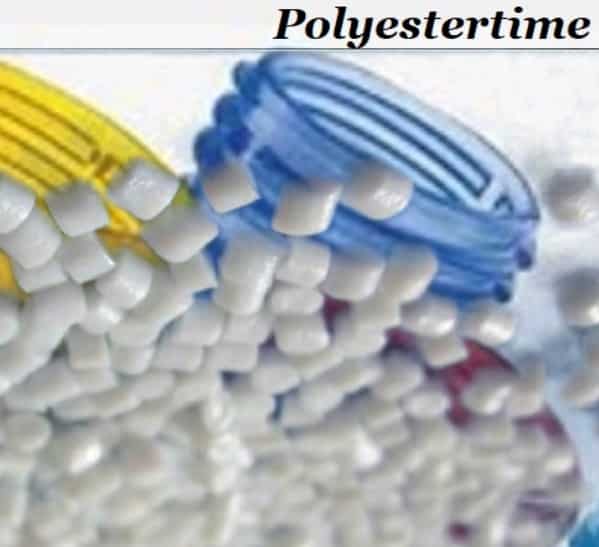
The contract price of paraxylene in Europe for February deliveries was agreed at EUR960 per ton, which is EUR45 per ton higher than the January contract price of material, market participants told ICIS on Wednesday.
The contract price was agreed on the terms of free delivery – FD NWE (North-West Europe).
Sources of polyethylene terephthalate (PET) downstream market explain the increase in prices of paraxylene on the European market by the growth of spot prices in Asia.
Earlier it was noted that the January contract price of paraxylene in Europe fell by EUR45 per ton compared with the level of December last year – to EUR915 per ton.

- Crude Oil Prices Trend

The whole world actually underestimated the US’ entire shale revolution back in 2010 and 2011, says Fereidun Fesharaki, Chairman, FGE, a leading energy consulting group. The impact of Venezuela sanction is yet to be felt, he cautioned. Fesharaki spoke to ETNow.
Today, the US exports about 2-2.5 million barrels per day (bpd). The US production is going up, but let us remember the US still is a net importer. Maybe, the net importer position will change and it becomes a net exporter, but a minor exporter.
The reason the Saudis are so powerful is that most of the oil they export and their own domestic consumption is very small, but the US domestic consumption is so huge. Forty per cent of gasoline demand in the world is in the US alone. The US additional volume that they can export is limited.
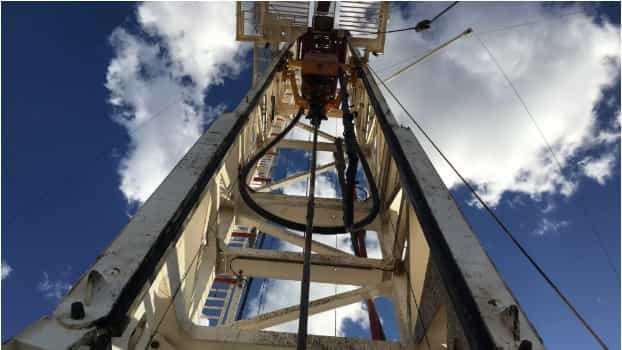
Scientists recently synthesised castor oil/2,4-toluene diisocyanate adduct to impart water repellency and antibacterial properties for cotton/polyester fabric
The emulsion synthesised in the study is suitable both as a water-repellent and as an antibacterial finish for cotton/polyester fabric. Source: silencefoto – stock.adobe.com.
The emulsion synthesised in the study is suitable both as a water-repellent and as an antibacterial finish for cotton/polyester fabric. Source: sil…
A new CAO/TDI adduct was synthesised by reacting 2,4-toluene diisocyanate (TDI) with castor oil (CAO) in a molar ratio of 70%, respectively, at 100°C for 90 min. The chemical structure of the synthesised adduct was confirmed by FTIR analysis. Furthermore, such adduct was emulsified in water using stearic acid/triethanol amine system.
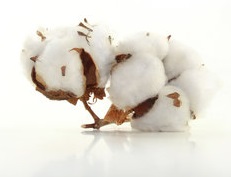
Partnership with Loop Industries will Provide a Free Mail-back Program for Cocktail, Cider and Beer Enthusiasts Seeking to Ensure Drinkworks Products are Upcycled
Today, beverage innovation company, Drinkworks and leading sustainable plastics technology innovator, Loop Industries, Inc. , announced a partnership to allow the users of the Drinkworks Home Bar by Keurig® to return used cocktail, brew and cider pods to be recycled and upcycled by Loop.
This announcement comes on the heels of Drinkworks launching the Drinkworks Home Bar by Keurig in November 2018, through an early access pilot program in St. Louis, Missouri.
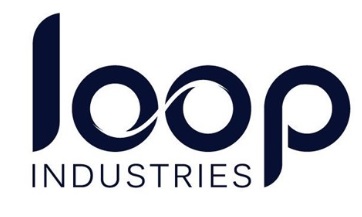
Under the theme “EU Plastics Strategy 2.0 – Taking the PET industry to the next step”, the complete PET industry sector shared perspectives and strategies for a succesful and even more circular future.
From PET resin producers, masterbatch producers, packaging designers and manufacturers, equipment manufacturers, label producers to major brand owners, EPR schemes, waste management organisations, recyclers, waste sorting and recycling machinery manufacturers – the entire value chain was represented. Additionally, speakers and participants from the European Commission , the European Parlimanet as well as ICIS shared their thoughts on the PET market as well as the plastics industry in the European Circular Economy.
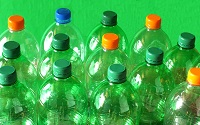
Spot prices of 1,4-butanediol (BDO) in China are expected to come under pressure in the second-half of February following the Lunar New Year holiday, as the market is awash with supply.
Chinese producers maintained relatively high stock inventory amid poor offtake due to the Lunar New Year holiday on 4-10 February.
Buying interest dwindled since mid-January as most downstream end-user plants in China ceased production ahead of the holiday.
Average operating rate of BDO plants in China dropped steadily to 58.1% in early February from 72.4% in early December, before recovering to 67.9% on 12 February, according to ICIS.
Meanwhile, the average operating rate of downstream polybutylene terephthalate (PBT) plants in China dipped slightly by 5% to 65% during the holiday period, based on ICIS.
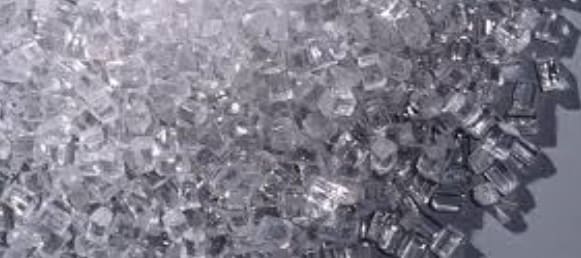
The European PET Bottle Platform has awarded perforated full body sleeves used on household and personal care PET bottles a three-year temporary endorsement.
Petcore Europe’s ODR Working Group has been working on increased recyclability of sleeved PET bottles as the use of sleeves can cause problems in sorting of PET bottles via Near Infrared (NIR) and optical detectors used in waste plastics packaging sorting and recovery plants.
The endorsement applies provided that certain conditions are met: The sleeve is equipped with double perforations, the packaging industry develops a standardised perforation concept (both in terms of functionality and design), and the PET bottles must carry a standardised message for the consumer, asking them to remove the sleeve from the bottle and place in the collection bin or bag for recycling.
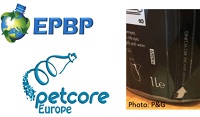
FANUC will unveil a new space dedicated to the Internet of Things (IoT) at its UK headquarters in Coventry, as part of its latest Technology Day for Wire EDM on the 19th February.
The day will see several of FANUC’s state-of-the-art ROBOCUT α-CiB Wire EDM machines in action, as well as demonstrating FANUC’s out-of-the-box MT-Linki machine tool monitoring service, which allows users to remotely monitor, harvest and analyse live production data.
Visitors will also be able to get a first glimpse of FANUC’s newest data connectivity platform FIELD, which will fully launch later in 2019.
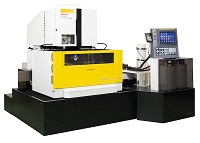
SULPHUR, LA (KPLC) – Lotte Chemical has announced the start-up of its ethylene glycol manufacturing facility in Sulphur as a success. The plant launched production on Feb. 5.
Lotte broke ground on the $1.9 billion ethane cracker facility in 2016 next to Axiall’s current manufacturing facility.
The cracker facility is one part of a $3.1 billion facility in Calcasieu Parish. Lotte joined with Axiall and Westlake Chemical in separate projects to build ethane crackers.
![]()
Veteran carpet weaver Nuri Çapuroğlu knew something was amiss when his employer called all the workers together last November.
“They summoned us to the accounting office and told us that they would reduce the number of shifts because the crisis had hit Angora Carpet,” he said, referring to his employer, and Turkey’s economic crisis.
Angora had filed for bankruptcy and would soon shut down eight of its 10 weaving looms and place most workers, including Çapuroğlu, on unpaid leave. Still out of work nearly three months later, Çapuroğlu is starting to lose hope after 30 years of carpet weaving.

In her first piece for 2019, resident digital printing expert Debbie McKeegan explores one of the most common fabrics in fashion: polyester. With sustainability and pollution on the minds of many, Debbie shares a world in which we could be using only recycled polyester by 2030. Debbie is the CEO of TexIntel – an expert advisory practice serving the Creative, Digital and Print Textile manufacturing Industry.
How do we re-fashion fashion?
Firstly we have to understand the fabrics we consume. Polyester has grown to represent 55% of the world’s fibre consumption, and acts as a staple of our industry. It’s big business, when viewed as a percentage of an industry that’s valued at $1.3 trillion (US).
Polyester is a much misunderstood synthetic fibre in the world of Fashion, maligned by the sustainable lobby because it is derived from oil-based resins, and because it consumes large amounts of energy in its current process of manufacture which must be reformed.

U.S. National Security Advisor John Bolton has warned countries and companies against buying crude oil from Venezuela, after the Latin American country’s Oil Minister Manuel Quevedo said during a surprise visit to India that Venezuela wants to sell more oil to the fast-growing Indian market.
In a tweet with a Bloomberg article on Venezuelan-Indian oil relations attached, Bolton wrote: “Nations and firms that support Maduro’s theft of Venezuelan resources will not be forgotten. The United States will continue to use all of its powers to preserve the Venezuelan people’s azsets and we encourage all nations to work together to do the same.”

